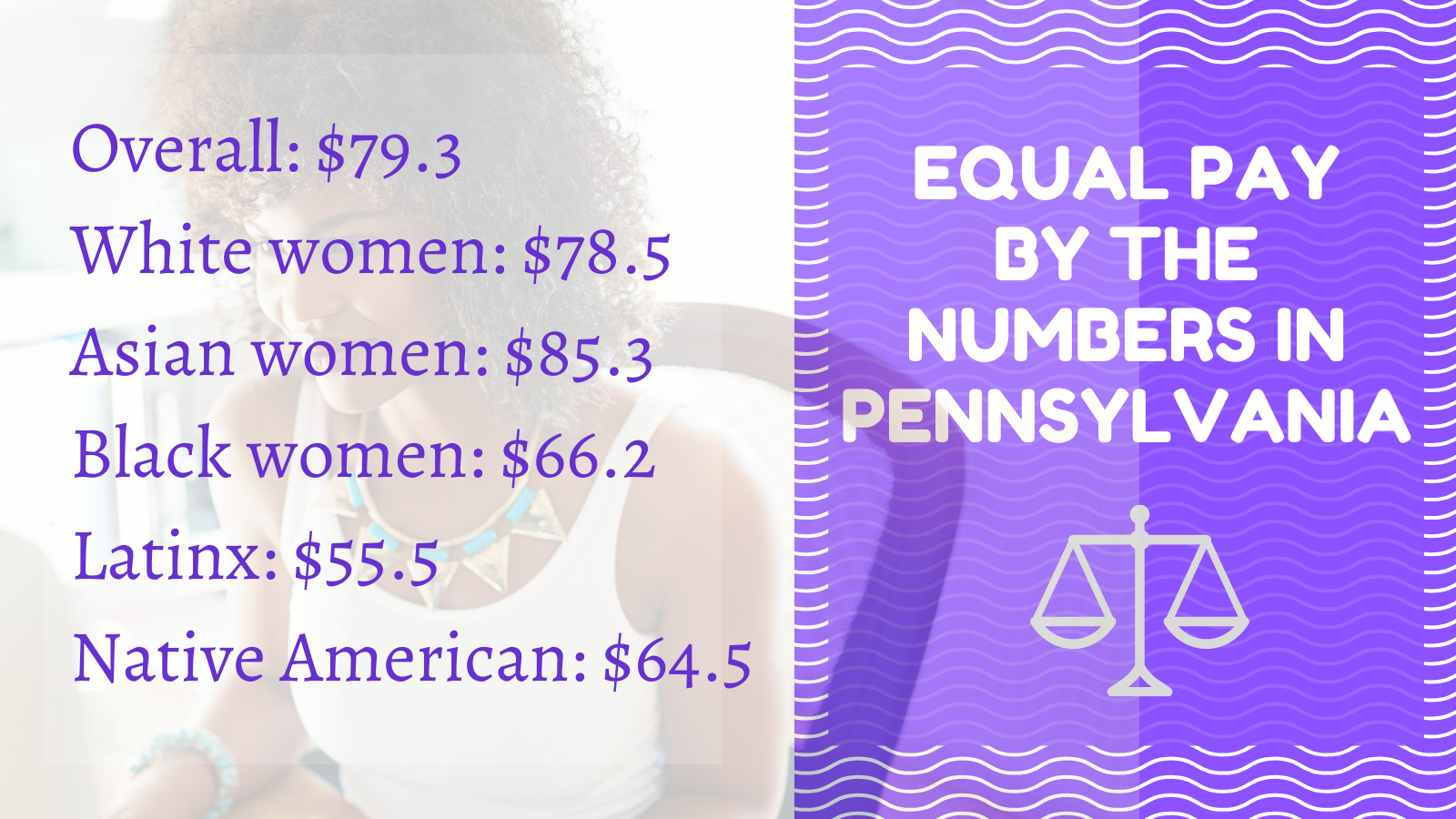
Earnings listed are compared to every dollar made by a white non-Hispanic man. Data is from National Women’s Law Center, based on 2019 (that is, pre-COVID-19) earnings.
Fifty-eight years after President John F. Kennedy signed the Equal Pay Act into federal law, we have still not reached equal pay in the United States. And so today is yet another Equal Pay Day, the day a woman, on average, has to work into the year in order to catch up to what white, non-Hispanic man made in 2020.
Women on average are paid less than white men, and Black, Latinx, and Native women make less than white women. This is true in apples-to-apples comparisons where men and women work similar jobs with similar responsibilities and qualifications—even in predominantly female occupations like nursing–and also true in a broader, more complex context of job segregation, in that women and especially women of color are disproportionately concentrated in low- and minimum-wage jobs.
Equal pay is also an LGBTQ issue.
Transgender people are nearly four times as likely to report a household income of less than $10,000 a year compared to the average population, and research shows that 8% of women in same-sex couples live in poverty.
Pay discrimination is intersectional oppression: Lesbian and bisexual women as well as Black and brown gay and bisexual men earn less income compared to men or white people—and also have fewer legal protections in places like Pennsylvania, where the General Assembly has consistently blocked expanding the state’s anti-discrimination law to explicitly include LGBTQ+ people. (Rep. Dan Frankel’s PA Fairness Act would fix that.).
The State of Equal Pay in Pennsylvania
At 10 AM this morning, WLP Director of Policy & Advocacy Amal Bass will speak about equal pay in Pennsylvania at a virtual press conference alongside state Reps. Bullock, Shusterman, O’Mara, and Davis.
You can watch the Livestream here.
“Progress on equal pay had already stalled, then the pandemic hit,” says Bass. “New short-term data counter-intuitively shows a slight narrowing of pay gaps but that’s only because so many Black and brown women, disproportionately represented in jobs like childcare and retail, got shoved out of the workforce altogether which slightly raised the average income of women in the labor market overall. We can’t go ‘back to normal.’ Fixing our state equal pay law is a no-brainer but frankly, we just haven’t seen the political will to support fair workplaces and healthy families from our leaders.”
Established in 1959, Pennsylvania’s Equal Pay Act has not been updated since 1967, when it was amended to apply to even fewer people.
The truth is at this point, Pennsylvania’s equal pay law is one of the weakest in the country. It barely applies to anyone. Nonetheless, leadership of the General Assembly has repeatedly blocked efforts to fix it.
One bright spot: If you live in the Philadelphia area, you may recall the City passed an ordinance banning employers from asking job candidates (or relying on) prior wages to set salary. Several businesses led by Comcast sought to block the ordinance from going into effect but lost in court. Philadelphia’s prior wage equal pay ordinance went into effect in September 2020.
Take Action: Urge Your Rep. to Support HB 821
Find your representative and urge them to pass House Bill 821. We have a long and complicated journey ahead to ensure a gender- and race-equitable recovery, but this bill is a good starting point.
HB 821 would prohibit sex-based wage discrimination and wage discrimination based on race and ethnicity, remove illogical exceptions, close loopholes, increase pay transparency, and expand the amount of time a person has to file a claim, among other improvements.
Women’s Law Project is a public interest law center in Pennsylvania devoted to advancing and defending the rights of women, girls, and LGBTQ+ people in Pennsylvania and beyond.
March 2021: Our physical offices are still closed due to the pandemic but we are OPEN and working to serve your needs. Contact us here.
Sign up for WLP’s Action Alerts. Stay up to date by following us on twitter, Facebook, and Instagram. As a non-profit organization, we can not do this work without you. Please consider supporting our work.

